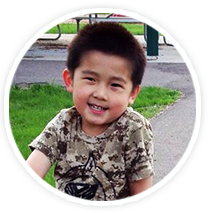Services are free!
Regardless of:
Around age 2, children have developed good communication skills and begin to assert their own ideas, wishes, likes and dislikes. At the same time, 2- and 3-year-olds have not developed patience, do not understand waiting and are not yet able to control their emotions.
Toddlers typically act out when things don’t go their way or they are not getting their needs met. They may cry, throw things, yell or hit.
As parents, you can help your child learn how to handle frustration and anger in a number of ways.
Another strategy is to help your child have a sense of control over some decisions. Offer choices such as which shirt to wear, which snack to eat or what game to play.
Young children may have a hard time delaying what they want or transitioning from one activity to another. Try using a timer to take turns with a favorite toy, to have some quiet time, or to know when it is time to leave. Explain to your child ahead of time what’s going to happen and when: “First we will play this game, then it will be time to go to the grocery store. We can set the timer so you will know when it is time to go shopping.”
Every young child has an occasional “meltdown” when things do not go their way – tantrums while shopping if they do not get a new toy or candy, crying when over-tired or over-stimulated, yanking a toy away from another child. If your child is in childcare or some other setting on a regular basis, it is important to talk with your child’s other caregivers so that you are dealing with challenging behaviors in similar ways.
If your child always acts out and is not able to learn how to handle anger and frustration over time, or if you are reluctant to leave your child with other children due to her challenging behavior, talk with your child’s health care provider about these concerns.

If you have concerns about a child's development and think a child might need extra help to learn and grow, don't hesitate to refer a child.
The family will be contacted by the local school district to arrange for a screening or evaluation to determine if their child is eligible for Infant and Toddler Intervention or Preschool Special Education services in Minnesota.
Services are free!
Regardless of:
